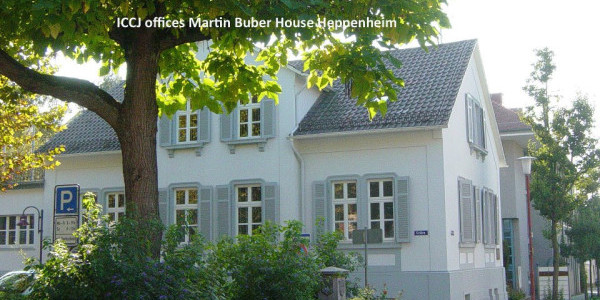The ICCJ wishes to all those celebrating Shana Tova, a happy 5785
"As the new year for Jews begins, let us all, Jews, Christians, and Muslims, rededicate ourselves to the sacred work of building relationships and understanding among our communities and in our world."
01/10/2024 | Na stronie od 01/10/2024

ICCJ offices Martin Buber House Heppenheim
Source: ICCJ
The ICCJ wishes to all those celebrating Shana Tova, a happy 5785, and invites all visitors of its website to read the High Holiday greeting from the ICCJ President Rabbi David Fox Sandmel.
Dear Friends,
The Jewish year 5784 will end shortly. For Jews, it is a time for taking stock and looking forward. Thinking about the ICCJ has been a significant part of my personal reflections as I prepare for the holidays.
For me, and for many of us, it has been a devastating year. The Hamas attack on Israel on October 7 and its aftermath have resulted in tragic loss of life. As I write this, the conflict appears to be widening; there is no indication of an imminent ceasefire, the return of the remaining hostages, or the end of the rising death toll in the region. In addition, there has been a terrifying increase of antisemitism and demonization of Arabs and Muslims across the globe.
In some places, interreligious relations itself has suffered, as overwhelming horror, anger, and pain make conversation difficult and sometimes impossible. Some have even wondered whether all the work of Jewish-Christian dialogue since the end of the WWII had been for naught.
ICCJ refuses to give in to despair and confronted this reality head on.
In December, our Theology Committee published a series of ”Theological Reflections on the Events that have unfolded in Israel and Gaza”. The March 2024 meeting of the ICCJ Executive Board dedicated a significant portion of its deliberations to the challenges to dialogue in the current environment. Our conference in June in Salzburg addressed this head-on: It included a special program offered by the Rossing Center for Education and Dialogue, ICCJ's member organization in Israel, on “Interreligious Relations in Crisis: Dialogue in the Shadow of the War in Gaza”. There were workshops such as “Enhancing the Holy Work of Jewish-Christian Relations Amid the Wounds of the Israel-Hamas War”, “Holy Friendships in Unholy Days: Interreligious Relationships as Source and Method”, and “Holy Language and a ‘War of Words’: Can a Listening and Learning Model Bridge Community Divisions Over Language?”
It is precisely at this moment that interreligious dialogue is essential. When we speak with one another about even the most complex, emotional, and painful topics, when we listen to one another (since listening is at least 50% of dialogue), we affirm the divine humanity in each person. We strengthen one another and demonstrate the power of dialogue to move our world in the direction of peace and reconciliation.
With that in mind, in the coming months, the ICCJ will be releasing a declaration entitled: “Rededicating Ourselves to Deepening Interfaith Relationships”. We will invite people from around the world to endorse the declaration and to take concrete steps to foster interreligious dialogue in their communities and institutions.
As the new year for Jews begins, let us all, Jews, Christians, and Muslims, rededicate ourselves to the sacred work of building relationships and understanding among our communities and in our world.
David Fox Sandmel ICCJ President